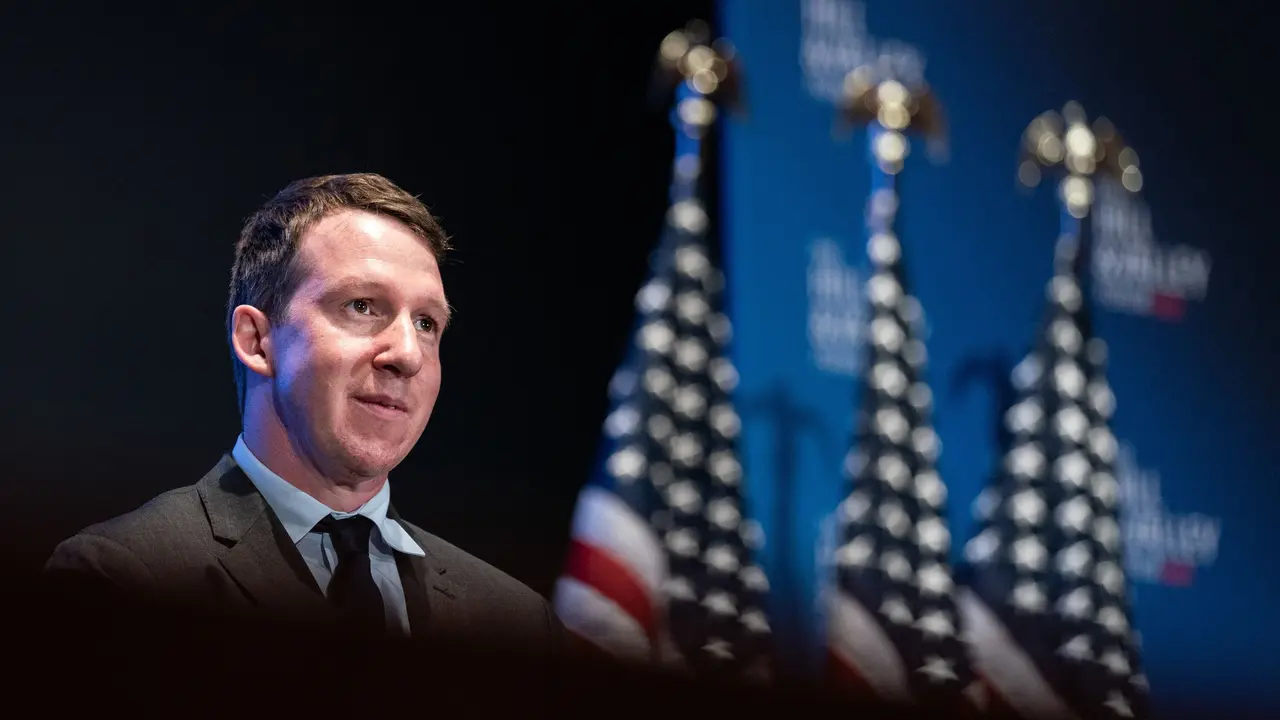Sen. Mark Kelly Proposes AI Trust Fund to Address Workforce and Infrastructure Challenges
2 Sources
2 Sources
[1]
Sen. Mark Kelly's AI plan calls on tech firms to pay up
Why it matters: The policy proposals are a sharp departure from the Trump White House's pro-growth AI Action Plan -- but there's no clear path to see them enacted any time soon. Driving the news: Kelly's boldest proposal calls for the establishment of a trust fund that could be used to, among other things, provide training to workers whose jobs are threatened by AI and invest further in infrastructure. * "As a nation, we must seize this moment to build an AI boom for all, not another tech bubble for the few," Kelly says in the plan. "AI companies must be forces for strengthening, not straining, our workforce, energy infrastructure, and public resources." * On the safety front, the plan also calls for "red team" tests of major models. Zoom in: Kelly mentions several possible ways that tech companies could be required to contribute, including requiring additional compensation for companies' use of public resources (like power, water and land), or additional taxes on profits from digital ad tools powered by AI, or from "AI-based revenue windfalls." * "This list is a starting point for conversation," Kelly says in the plan. "It is not comprehensive nor exclusive. We must work together to explore the right approach with a clear focus on the biggest frontier companies that stand to benefit the most." Yes, but: As long as Republicans control both houses of Congress as well as the White House, Kelly's plans seem unlikely to gain traction. What's next: Kelly is set to appear on stage later Wednesday at Axios' AI+ Summit in Washington, D.C. where he will discuss the plan.
[2]
Democrats Are Starting To Grapple With The Biggest Sleeper Issue In Politics
Sen. Mark Kelly (D-Ariz.) is proposing AI companies to contribute some of their "enormous profits" to a fund dedicated to helping American workers and communities grapple with likely job losses and infrastructure strain caused by the technology, a sign the Democratic Party is beginning to wrestle with what is expected to be a major fault line in politics over the next decade. Kelly, a swing-state senator and potential 2028 presidential candidate, rolled out the idea in a white paper aiming to create "an AI boom for all, not another tech bubble for the few." He's unlikely to be the only major Democrat with ideas for how the party should grapple with a technology projected to replace 7% of all American jobs over the next decade and change the way millions more jobs function. The speed and size of the changes could move AI from being a boardroom concern today to a kitchen table concern by the time voters head to the polls in 2028. "There's a good chance this is one of the top issues that voters are concerned about," said Bharat Ramamurti, the former deputy director of the National Economic Council under President Joe Biden. "I think it's very likely that either they will see their jobs changing or disappearing because of AI, or someone in their family, or they're hearing in the news all the time about how certain companies are cutting back on workers because of AI adoption, and they will want answers from policymakers." AI is likely to hit white-collar employment the hardest, meaning it could cause major economic problems for the college-educated voters and expensive metro areas that make up the Democratic Party's base. The increasing likelihood of a recession in the coming years could also accelerate employers' plans to adopt AI and lay off workers. At the same time, the construction of AI-powering data centers, which put strains on the electrical grid, has become a flashpoint in cities and towns across the country, and concerns about AI's potential to cause real-life harm are beginning to alarm lawmakers in both parties. Kelly's white paper aims to start at least a conversation about how to address all of these issues, with a proposed "AI Horizon Fund" as its centerpiece. The plan floats several potential fees or taxes AI companies could pay into the fund, including taxing "large-scale use of public resources, like power, water, and land; [p]rofits from digital ad tools powered by AI; or AI-based revenue windfalls." The fund would be kept separate from Congress' normal appropriations process. Money from the fund would then be used to improve necessary infrastructure, fund clean energy and domestic supply chains and help workers who lost their jobs due to AI. (The plan repeatedly notes past federal efforts to help workers displaced by technology -- like the Trade Adjustment Assistance program - are widely thought to have fallen short.) "It's common sense to tap the enormous profits of the big companies developing and deploying AI so innovation thrives, opportunity is shared, and every community benefits," the paper reads. Kelly, who was a top contender for the vice presidential slot on a ticket with 2024 Democratic nominee Kamala Harris, has already seen some political fights over AI in his home state: the Tucson City Council voted against a data center tied to Amazon last month over concerns about how much water it would use. Still, political battles about AI are in their infancy -- a skirmish over a 10-year ban on state-level AI regulations set to be included in the GOP's budget bill ended with the ban stripped out of the eventual law signed by President Donald Trump. And the AI industry has launched a super PAC, Leading The Future, with $100 million in funding and a mandate to "oppose policies that stifle innovation, enable China to gain global AI superiority, or make it harder to bring AI's benefits into the world, and those who support that agenda." But Ramamurti thinks there will be real long-term political benefits to being a leader on the issue. "If you're a candidate in 2028, you're going to need to be able to talk about what your plan is for making sure that people benefit from this broadly," he said. "And I think voters will respect it if you're not a Johnny-come-lately to this issue."
Share
Share
Copy Link
Senator Mark Kelly introduces a bold plan for AI companies to contribute to a trust fund aimed at supporting workers and infrastructure affected by AI advancements. The proposal sparks discussions on AI's impact on jobs and the economy.

Senator Mark Kelly's AI Plan: A Trust Fund for the Future
Senator Mark Kelly (D-Ariz.) has unveiled a groundbreaking proposal to address the growing impact of artificial intelligence on the American workforce and infrastructure. The plan, which calls for the creation of an "AI Horizon Fund," aims to ensure that the benefits of AI are shared broadly across society
1
2
.The AI Horizon Fund: Tapping into Tech Profits
At the heart of Kelly's proposal is the establishment of a trust fund that would be financed by contributions from AI companies. The fund would be used to:
- Provide training for workers whose jobs are threatened by AI
- Invest in infrastructure strained by AI development
- Support clean energy initiatives and domestic supply chains
Kelly suggests several potential funding mechanisms, including:
- Additional compensation for companies' use of public resources (power, water, land)
- Taxes on profits from AI-powered digital ad tools
- Levies on "AI-based revenue windfalls"
1
2
Addressing AI's Impact on Jobs and Infrastructure
The proposal comes amid growing concerns about AI's potential to disrupt the job market. Projections suggest that AI could replace 7% of all American jobs over the next decade and significantly alter many more
2
.Kelly's plan also addresses the strain that AI development places on local infrastructure. The construction of AI-powering data centers has become a contentious issue in many communities due to their high demand for resources like electricity and water
2
.Related Stories
Political Implications and Industry Response
While Kelly's proposal marks a significant step in addressing AI's societal impact, its path to implementation remains uncertain. With Republicans currently controlling both houses of Congress and the White House, the plan may face significant obstacles
1
.The AI industry has already begun to mobilize in response to potential regulations. A super PAC called "Leading The Future" has been launched with $100 million in funding to oppose policies that it believes could stifle innovation or hinder AI development
2
.Looking Ahead: AI as a Political Flashpoint
Experts predict that AI could become a major political issue by the 2028 elections. As the technology continues to reshape the job market and impact local communities, voters are likely to demand concrete plans from candidates on how to manage these changes
2
.Senator Kelly's proposal represents an early attempt to grapple with these complex issues, potentially positioning him and the Democratic Party at the forefront of this emerging policy debate.
References
Summarized by
Navi
Related Stories
AI Becomes Political Wedge Issue as MAGA Base Splits from Trump's Tech Agenda
24 Nov 2025•Policy and Regulation

Super PACs spend millions to shape AI policy as midterm elections become battleground for regulation
12 Feb 2026•Policy and Regulation

AI Industry Faces Political Battle as Rival Super PACs Prepare for 2026 Midterm Spending War
26 Nov 2025•Policy and Regulation

Recent Highlights
1
ByteDance's Seedance 2.0 AI video generator triggers copyright infringement battle with Hollywood
Policy and Regulation

2
Demis Hassabis predicts AGI in 5-8 years, sees new golden era transforming medicine and science
Technology

3
Nvidia and Meta forge massive chip deal as computing power demands reshape AI infrastructure
Technology





